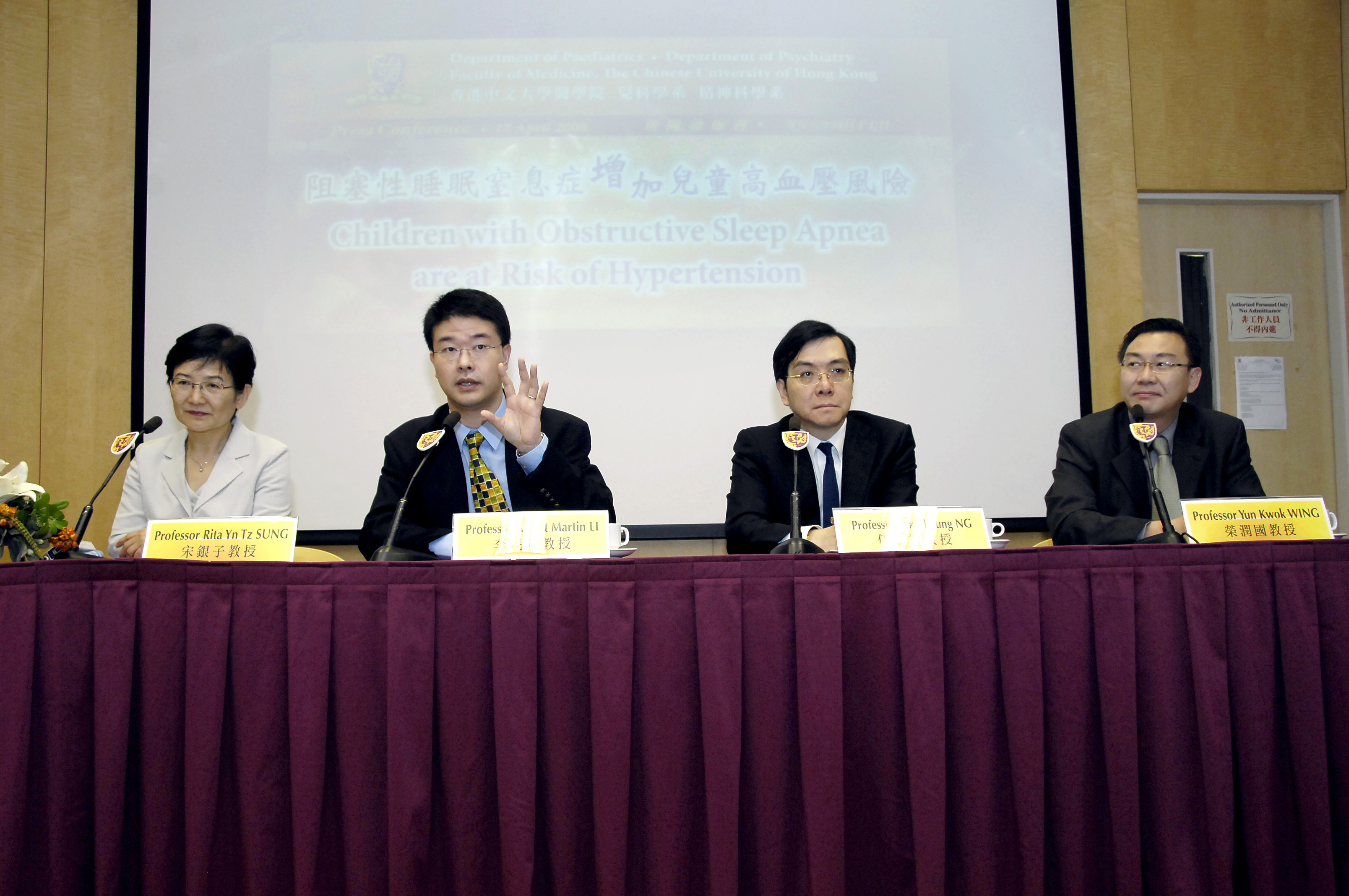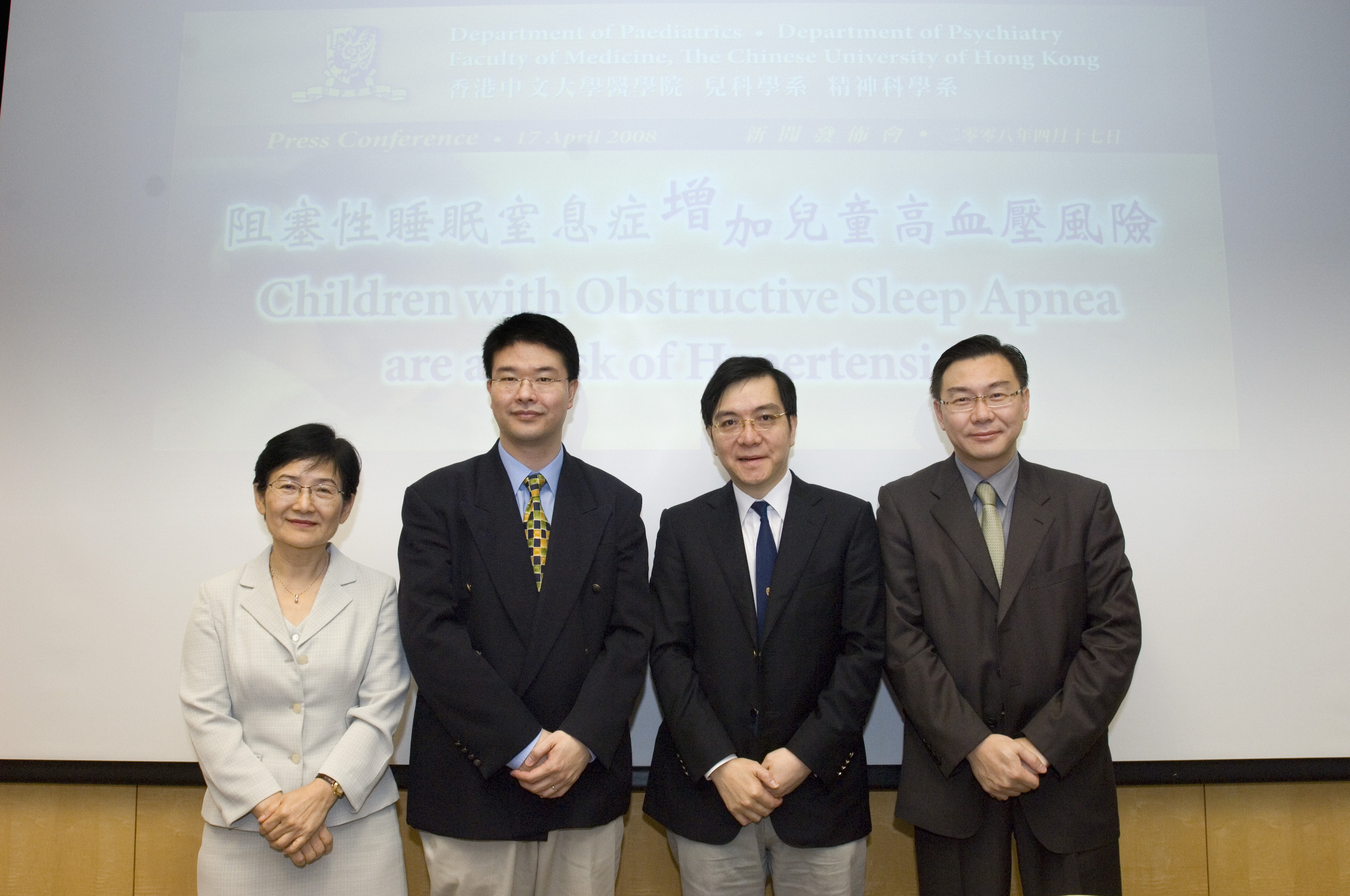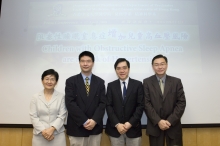CUHK
News Centre
Children with Obstructive Sleep Apnea are at Risk of Hypertension
Data about obstructive sleep apnea (OSA) and hypertension is scarce for the paediatric population, and the few published studies have provided conflicting results because of poor study design and small sample size.
Department of Paediatrics and Department of Psychiatry at The Chinese University of Hong Kong jointly conducted an epidemiological study on childhood OSA between February 2003 and December 2006. One of the aims of the study was to evaluate the association between OSA and blood pressure in children. The subjects for this study were aged between 6 and 13 and recruited from 13 randomly selected primary schools. 360 subjects underwent sleep study and ambulatory blood pressure monitoring.
Children with OSA were found to have significantly higher blood pressure than normal healthy children during both sleep and wakefulness. The blood pressure levels increased with the severity of OSA, and children with moderate-to-severe disease were at significantly higher risk for nocturnal systolic (nearly 4 times higher risk) and diastolic hypertension (3.3 times higher risk). This research finding has been accepted for publication in the international journal Thorax.
This study documented higher systolic and diastolic blood pressure in children with OSA compared to healthy subjects. Childhood OSA is also demonstrated to be an independent predictor of nocturnal hypertension. These findings are clinically relevant and important as high blood pressure in childhood might be a potential risk factor for adulthood hypertension and the development of metabolic syndrome. Children and adolescents with elevation of blood pressure are also at increased risk of possible adverse outcomes, including cerebrovascular accidents and congestive heart failure.
Children with symptoms suggestive of OSA (see appendix) should therefore be investigated early and treatment instituted. Further research is definitely needed in this aspect of childhood OSA.
Appendix: Symptoms of childhood OSA
|
Nocturnal symptoms |
Loud habitual snoring |
|
Difficulty breathing when asleep |
|
|
Witnessed breathing pauses |
|
|
Restless sleep |
|
|
Sweating |
|
|
Dry mouth |
|
|
Abnormal sleeping position |
|
|
Enuresis |
|
|
Night terrors / sleep walking |
|
|
Daytime symptoms |
Mouth breathing |
|
Morning headache |
|
|
Difficulty waking up |
|
|
Mood changes |
|
|
Poor attention span / academic problems |
|
|
Increased nap / daytime sleepiness |
(From left) Professor Rita Yn Tz Sung, Professor, Department of Paediatrics, CUHK Professor Albert Martin Li, Professor, Department of Paediatrics, CUHK Professor Pak Cheung Ng, Chairman, Department of Paediatrics, CUHK Professor Yun Kwok Wing, Professor, Department of Psychiatry, CUHK







